
It Takes a Village: Your Playbook for Sports Event Housing Success













It Takes a Village: Your Playbook for Sports Event Housing Success












Dear Reader,
Youth sports tourism is booming, with an economic impact expected to reach $77.6 billion by 2026.


This incredible growth brings opportunities and challenges for event rights holders and organizers managing increasingly complex housing needs with limited staff and tight budgets.
You’re likely facing rising customer expectations, with families wanting both cost-effective accommodations and “playcation” experiences. Managing housing can become a time-consuming task, taking you away from what you do best: running tournaments and competitions kids and families love.
Our latest event housing guide shows how successful rights holders are turning these challenges into opportunities through strategic partnerships. This in-depth report draws from interviews with six industry leaders. You’ll discover proven strategies to:
• Secure better hotel rates and room blocks through brand partnerships
• Boost revenue with destination grants, sponsorships, and marketing support
• Drive room nights and economic impact with data
• Create unforgettable experiences that make young athletes and families thrilled to come back
Whether you’re organizing local tournaments or international championships, these partnership strategies will help you grow your events while delivering extra value to participants.
Sports tourism is, above all, a relationship business. Wishing you many rewarding partnerships for long-term success!
Yours in Sport,

John David President & CEO Sports Events & Tourism Association

DMOs (destination marketing organizations) are traditionally your convention & visitors bureaus (CVBs) and sports commissions.
• Would you like to boost your event’s economic impact? You can do that by partnering with DMOs.
• Would you like to provide the unique, local experiences participants crave? You can do that by partnering with DMOs.
• Would you like to offer fun new ways to keep athletes and families returning year after year? You can do that by partnering with DMOs.
Let’s look at six ways collaborating with DMOs levels up your events.
Challenge: “Gaming is Atlantic City’s top revenue generator, but we can’t rest on gaming alone,” says Dan Gallagher, Director of Sports Sales, Atlantic City Sports Commission. “We need to diversify, especially with the boom in sports travel.”
Solution: The destination offers a wealth of family-friendly amenities. For example, Showboat Hotel houses one of the world’s largest indoor/outdoor waterparks. It features a mammoth arcade with a go-kart racetrack, bowling alley, and hundreds of games.
Think of DMOs as your first touchpoint for successful events. By directing your requests to them, you access a wealth of local knowledge and connections.
For starters, DMOs help secure destination grants, cash sponsorships, and special discounts and perks.
They also recommend great local vendors to enrich event experiences.
Results: “Showboat is routinely sold out when youth sporting events are in town because of its incredible amenities,” Gallagher notes. “Teams love staying there. Many of our other hotels are also known for their exciting, family-friendly amenities.”
Takeaways: “When organizers give families this type of added value, it’s a win,” he adds. “Attracting kids and families year-round has been a game changer for us.”
In events, as in sports, timing is everything.
It doesn’t matter if you’re planning a small invitation-only competition or a multi-venue tournament with thousands of participants.
These destination experts can let you find out about potential conflicts – like large-scale events or college graduations – that could reduce hotel and venue availability.
On the flip side, they can find open dates on the calendar when sports venues and nearby hotels are available at good rates. By working closely with your DMO, you gain market intelligence to offer the best value and customer experience.

While virtual tours have their place, nothing beats checking out venues, hotels, and logistics first-hand.
DMOs often subsidize site visits, where you can assess factors that might not be apparent from afar. How long does it really take to get from the hotel to the venue? Is traffic heavy? Are restaurants nearby? These insights help drive informed decisions.
“We educate clients about the destination upfront to anticipate potential issues and create workarounds,” Gallagher explains. “Transparency is key. Our goal is to host events that return every year because we’re the right location at the right time, at the right property.”


For many families, the weekend is about more than what happens on the fields and courts. DMOs share a wealth of local knowledge and industry relationships for visitors who want to turn tournaments into
Destination experts collaborate with local businesses on special programs showcasing attractions, restaurants, stores, and activities to

You can also use your DMOs marketing materials and local media contacts to promote your events and drive attendance.
There are “Know Before You Go” emails and welcome packets for visitors. Event microsites typically offer tips, directions, info on nearby grocery stores and pharmacies, and lists of popular restaurants, ice cream shops, attractions, and more. Families can use interactive maps to customize their itineraries.
Last but not least, DMOs and CVBs help tell your event story. They’re among the industry’s greatest fans because they understand the tremendous value youth sports bring to destinations.
“Youth sports has been a game changer for us,” Gallagher says. “From a leisure travel standpoint, we’re a seasonal destination due to weather. We make our money between Memorial Day and Labor Day. After that, leisure travel tapers off.
“Sports is a huge filler in group business in our off-season,” he continues. “I can’t tell you how good it feels when you go to a restaurant that’s packed on a Thursday night in February because of a sporting event at the convention center.”
Event: For the 2024 YMCA Gymnastics Nationals & Invitational, Valley Forge Sports wanted to deliver a podium-worthy experience for gymnasts, rights holders, and area businesses.
Solution: The Valley Forge Sports team used their local connections to give visitors a true taste of the local culture:
• The Opening Ceremony elevated the experience, taking place at the renowned Finneran Pavilion, home of the Villanova University Wildcats NCAA Division I Basketball Teams. Afterward, families poured into nearby restaurants for dinner.
• YMCA Day at the King of Prussia Mall treated gymnasts and their families to discounts and activities at one of the largest malls in the U.S. Digital signage throughout the mall gave the group a giant warm welcome.
• Taylor Swift-inspired bracelets featured gymnastics-themed beaded bracelets at special pricing for participants, compliments of a brand-new Little Words Project store at the mall.
Results: Families lined up down the street to snag Swiftie bracelets commemorating their remarkable Championship experience. They raved about their VIP treatment. Cash registers turned cartwheels at hotels, restaurants, and stores across the destination.

To build relations with DMOs, here are six best practices rights holders and organizers should know.
Put event credibility on the fast track. When a lead comes from the DMO, there’s a trust factor that they’ve vetted the opportunity to ensure it’s a good fit.
“Rights holders should come to us early in their planning process,” advises Don Dukemineer, Director of Sports Development at Decatur Morgan County CVB. “We have contacts and insider knowledge about accommodations and amenities they often don’t know exist. These amenities greatly enrich visitor experiences.”
To build relations with local businesses, make sure your DMO alerts area businesses that a big event is coming to town. This way, they can staff up to provide stellar service and maximize the opportunity.

Event: Decatur Morgan County Tourism will host an international dog competition in April 2025.
Challenge: Many of the participants will travel in RVs and prefer to stay at campgrounds. Decatur’s largest campground is conveniently located next to the facility where the event will take place. However, the campground doesn’t accept reservations until six months out.
Solution: The CVB arranged a special rate and booking link at the campground for participants and told the rights holder to have the group book on October 1st. Then, it notified the campground and nearby businesses to be ready for a major competition coming to town.
Results: The campground’s reservation system exploded with reservations on October 1st. The competition generated high registration, promising a jolt to the local economy. In addition, the rights holder valued the personalized, white-glove service. Plus, participants appreciated getting local information ahead of time to help everything run smoothly.

DMOs stay neutral. They’re adept at creating all-around wins. Have open communications about issues and work together to
Many DMOs ask organizers to have schedules set at least two weeks in advance. That’s because canceling a few days before the tournament creates problems for organizers and hotels and gives
“It must be a win-win partnership for the hotel and organizer,” Dukemineer emphasizes. “We understand situations arise that might affect a team’s ability to participate. But being prepared in advance allows everyone flexibility to make adjustments.
“Having schedules set further in advance makes things easier for organizers and destinations,” he adds. “Most importantly, it helps teams avoid cancellation fees and improves their overall experience.”

Event: Valley Forge, Pa., hosts three flag football tournaments, generating over 5,000 room nights annually.
Challenge: When hotels complained about disruptive behavior, the DMO was concerned it could dampen enthusiasm for sports tourism in the local business community.
Solution: The DMO and rights holder collaborated on a Flag Football Hotel Code of Conduct:
1. Parents sign the Code during event registration.
2. They sign it again at hotel check-in.
3. Hotels gain direct access to tournament directors. Plus, the tournament places staff on-site at host hotels when possible.
4. Tournament directors can disqualify the entire team for violations.
5. If athletes damage hotel property, their parents are liable.
Results: The Hotel Code of Conduct scored impressive gains, including significant improvement in behavior at hotels for all three tournaments. With the success of this program, the rights holder improved relations with local businesses, and hotels continued to host the teams.
“The Code works because of the three-way partnership of the rights holder, hotel, and destination,” says Jon Scheuren, Director at Valley Forge Sports Events & Tourism Authority. “The rights holder showed commitment to ensure teams are as respectful of the hotel as they are of the venue.”

With deep community ties and backgrounds in hospitality and sports, DMOs and CVBs bring creative problem-solving skills to the table and
Event: Decatur Morgan County, Ala., hosted the National Association of Intercollegiate Athletics (NAIA) 2021 Men’s Soccer Championships.
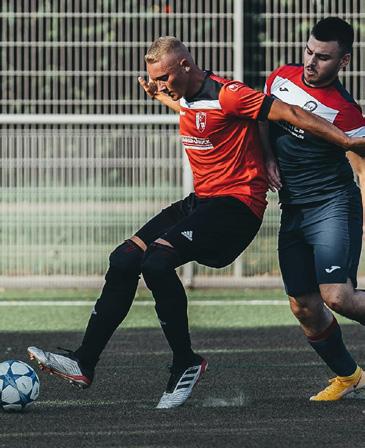
Challenges: COVID-19 restrictions threatened to diminish the Championship experience for ten participating teams. The event’s traditional banquet wasn’t possible under health guidelines. Adding to the challenges, NAIA teams operate with limited travel budgets, and most of the athletes were unfamiliar with the destination.
Solution: To celebrate the athletes, the destination collaborated on an unforgettable VIP experience.
• The CVB matched community leaders with each team under the NAIA’s Honorary Coaches Program. These volunteers welcomed athletes by hosting meals at their homes and serving as destination ambassadors.
• Despite COVID restrictions, the CVB arranged to have a community pool available where the studentathletes could recuperate in the evening.
• Because barbecue is huge in Decatur, the CVB partnered with a local BBQ hotspot to welcome the teams upon their arrival in town. Instead of hosting an in-person banquet, the CVB delivered delicious meals to the teams at their hotels.
Results: The program enjoyed immediate success. Teams were honored with joy and celebration, Decaturstyle. Community engagement soared. When the city hosted the Soccer Championship the following year, the CVB was flooded with requests to volunteer as Honorary Coaches.
Key Takeaway: DMOs and CVBs provide vital local connections, creative problem-solving, and cost-effective ways to enrich events through personal touches that allow athletes to have experiences they won’t forget.
Want a sure-fire way to improve housing performance? Team up with National Sales Organizations (NSOs) to take your hotel partnerships from good to stellar.
NSOs manage and support sales activities for a hotel company or brand. They serve as a hub, coordinating sales efforts across multiple properties nationwide or globally.
Why do you need an NSO?
Because the playing field has changed in the past 20 years. Youth sports has grown from a loose collection of community-based teams managed through Parks & Rec departments into a multi-billion-dollar industry.
With rapid growth comes new challenges. Managing event housing now requires strategic partnerships to navigate a booming market.
This is where NSOs prove invaluable.

NSOs leverage their brand status and contacts to help you secure better rates, concessions, and custom packages. By handling many events at once, they also boost efficiency as a one-stop shop.
National sales create a bridge between hotels and rights holders and their housing companies. They bring key advantages to event management:
• Deep relationships with hotels
• Market intelligence
• Support with Request for Proposals (RFPs)
• Expert negotiation and problem-solving skills
Team up with NSOs to take your hotel partnerships from good to stellar.
Here’s how NSOs help you turn four common housing challenges into successes.
When an RFP comes from national sales, there’s a trust factor.
“Hotels know the lead has been vetted,” says Jeremy Bell, Account Director of Sports USA and Canada at IHG Hotels & Resorts. “We have a team of a dozen specialists who monitor RFPs and ensure they go quickly to the right hotels.
“Copying NSOs on RFPs greatly improves your hotel selection,” Bell continues. “It also helps drive faster response times, broaden your reach, and overcome potential issues that may arise. We understand the bigger picture.”
What’s more, NSOs explain the value proposition of youth sports. Maybe the event is a small qualifying round that could lead to a world championship. National sales help you gain support and score bigger wins.
NSOs also provide market intelligence on the best dates and locations for events. They enhance decision-making by sharing their knowledge on peak seasons, hotel and venue availability, competing events, and more.
Their knowledge of hotel operations and sports events helps build consensus.
“Part of our role is twofold,” explains Kelsey McLean, Senior Worldwide Sales Manager of Sports at BWH Hotels. “We educate hotels on why certain rates or terms are essential to the event. Then, we communicate back to the housing provider what the business needs and goals of the hotel are so the two sides can collaborate effectively.”
“NSOs connect the dots between the two parties, so they can reach a middle ground.” ~ Kelsey McLean
NSOs’ dual perspective comes in handy for solving other challenges as well.
Let’s say bookings are falling short of projections. Does the issue stem from communication gaps, rate concerns, or brand misalignment?
NSOs examine these and other factors to identify causes.
Savvy lodging specialists rely on their contacts at the national level to resolve issues swiftly and meet housing goals.
“Sometimes, you need to ask the tough questions.
For example, a hotel might inquire why certain concessions, rebates, or cancellation policies are necessary. A housing company, in turn, may not understand why a hotel declines an event.
Despite its tremendous value, youth sports can pose challenges for some hotels. A tournament might conflict with other business, like corporate travelers in town for long-term projects. Or maybe the hotel has concerns about increased breakfast costs or wear and tear on the property.
NSOs know how to ask the difficult questions and uncover barriers. When everyone understands each other’s needs, finding solutions that work to both parties’ advantage is easier.”
These five steps below will help you create championship housing programs and grow your events.
Leverage NSOs’ relationships: “Many rights holders and housing companies often underestimate the value of the connections national sales reps have with our hoteliers,” McLean points out. “These genuine relationships, developed over time, can play a crucial role in how we communicate the value of your event to our hotels.”
Share the Big Picture: Explain that your event will not only put heads in beds. Let prospective partners know it will also bring business to the community in the current year and possibly in the future.
Get personal: “Sports tourism is a relationship business,” Bell notes. “If people know you, you’re likely to get better outcomes. Take time to connect one-on-one. Sit down and talk at trade shows and pick up the phone to build a more personal relationship. It goes a long way.”
Background: When Christine Strong Simmons stepped in as Managing Director at USA Taekwondo in December 2021, the organization faced a daunting task: placing 12 events with a small in-house staff.
With the 2021 team trials canceled due to COVID-19, the lean events team needed to schedule 10 of the 12 events in 2022.
Challenges:
• Minimal staffing: Four people to handle operations, membership, and event planning
• Compressed timeline: Securing venues and housing ASAP
• Event size range: From local meets to 1,400-athlete national championships
• Dual coordination: Matching venue and nearby hotel availability
• Budget constraints: Negotiating competitive rates despite tight timelines
Solution: USA Taekwondo coordinated outreach through its internal team and housing company. The collaboration created a vast network of contacts. Long-standing relationships proved invaluable as NSOs and hotels responded quickly to USA Taekwondo’s urgent requests.
Results: USA Taekwondo placed all 12 events in a record five months.
• They secured competitive hotel rates despite compressed timelines.
• The internal team maintained regular operations while placing the events.
• After the pandemic lockdowns, thousands of athletes were thrilled to be back at competitions.
“Without good connections at the hotel and brand level, we probably couldn’t have placed all those events,” Simmons says. “That’s the power of relationships. It was extraordinary how many people stepped up to help.”
Make the Most of Market Intelligence: Start planning your event by asking NSOs and destinations what else is in town on your preferred dates. Use these insights to choose the best timing for your event.
Start Early: Lock in room blocks as early as possible. “The bigger the booking window, the greater your chances of finding availability,” Bell points out. “An early start also enhances your ability to negotiate favorable rates and flexible booking policies that allow changes without significant penalties.”
Balance Peak and Off-Peak Periods: Structure year-round partnerships with your NSO that balance peak and off-peak periods so everyone comes out ahead.
Share the Full Picture: Spell out your requirements in a comprehensive RFP. For example, are you looking for hotels in a specific county? Is extra storage capacity a must?
“Provide clear, accurate information and be upfront about what your event needs and the goals of the RFP,” McLean advises. “There’s the saying, ‘Don’t use 100 words when ten will do.’ But sometimes, you need 100 words to fully explain event requirements.
“Clearly communicate the RFP parameters,” he continues. “Be sure to include venue information and expected distance parameters to the sports complex, so that we can get RFPs to the right hotels as quickly as possible.”
Show Flexibility: Hotels have a finite number of opportunities each year to maximize profits. So, offer several sets of dates on your RFPs. Flexibility is often rewarded with better rates and terms.
Event: Valley Forge Sports hosts three national flag football tournaments annually with the same rights holder.
Problem: The biggest one falls on Villanova University’s Graduation Weekend. Hotels asked why they should partner with this tournament on a compressed weekend.
Solution: The sports commission suggested making the three tournaments a package deal. To win contracts for the ones on off-peak weekends, when the business was very lucrative, the hotels needed to provide rooms during the compressed weekend.
Result: The hotels agreed, and the events moved forward. Teamwork helped everyone win.


Focus on Multi-Year Contracts. “Today’s tight budgets make it essential to secure cost-effective housing solutions,” Bell says. “But finding the right balance between quality and affordability can be a challenge.
“If you come to brands with three or four opportunities, you’re more likely to get a better deal,” he continues. “When you give brands more business than an occasional one-off contract, it goes a long way toward building the relationship and securing better rates.”
Show Them the Data: Come to the table with historical data. This information is available from your housing platform or lodging company.
When NSOs and on-property contacts see strong room pickup from past events, they’re more likely to negotiate with you on a favorable rate.
When NSOs and on-property contacts see strong room pickup from past events, they’re more likely to negotiate with you on a favorable rate.
As mentioned, customer expectations are rising. Leverage your relationships with NSOs and on-property contacts to customize offerings and add value.
“Teams are looking for housing options that cater to specific needs, from proximity to venues to amenities that support team dynamics,” Bell explains. “For example, they want space to practice routines in the evening or conduct team meetings over breakfast before heading out for the game. Add value with customizable housing options to meet and exceed these expectations.”
Strategic partnerships are your winning play for sports event housing success.
By teaming up with sports commissions, CVBs, and NSOs, you’ll save time and secure guaranteed rooms at better rates—all while delivering enriching experiences that keep families coming back.
Despite these advantages, many event organizers struggle with housing management because of low staffing, tight budgets, and complex logistics.
These challenges intensify as youth sports travel explodes, with more teams competing for venue space and hotel rooms. Without the right partnerships, you risk losing teams to competitors who offer better housing options.
This special report provides a proven playbook to enhance your housing program through strategic partnerships:
• Winning plays from industry experts to boost participation and revenue
• Success stories showing how partnerships grow events
• Tactics for creating joyful experiences through sports
The insights shared here can improve your efficiency while maximizing profits and delivering unforgettable experiences for young athletes and families.
Use them to create championship-level events for sustained business growth!
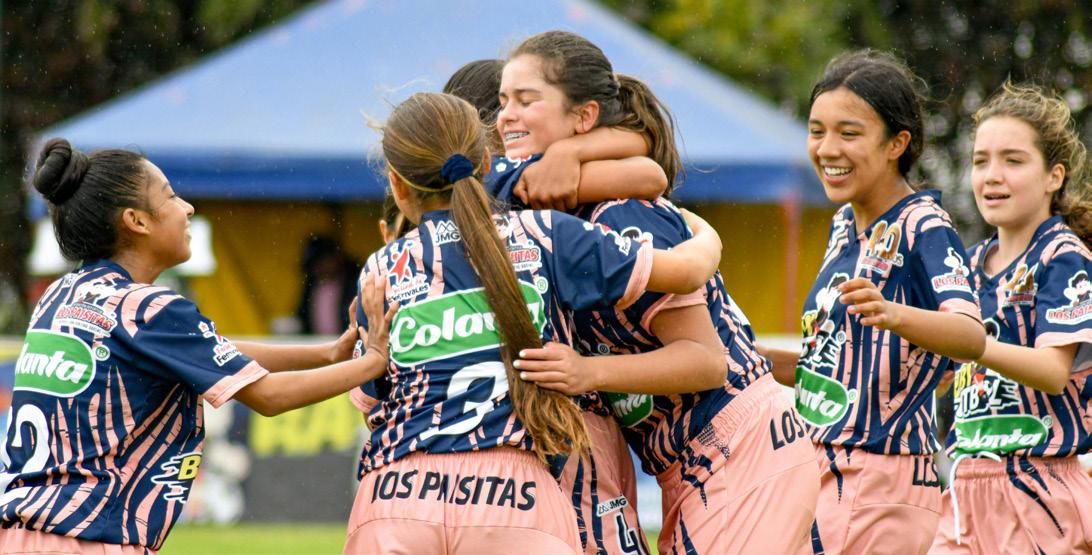






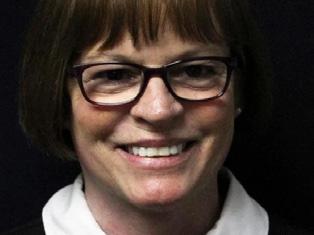
As the only non-profit 501(c)3 trade association for the sports events and tourism industry in the United States, Sports ETA is the most essential resource for sports commissions, sports destinations, sports event owners, and industry partners. We believe sports tourism and the events that our members own and host have the power to transform society for the better. Our passion is to help sports events and tourism professionals achieve previously unimaginable levels of performance. We do this by nurturing a community of smart, creative, and interesting people: our members. Visit sportseta.org.

Playbook365 is an all-in-one sports-event management software that puts all the essential tools in one place. No more hopping back and forth between apps. Playbook365
Attrition fee:
Amenity: on-property premiums (dining, pool, fitness center, spa, playground). Use of some on-property amenities has a fee
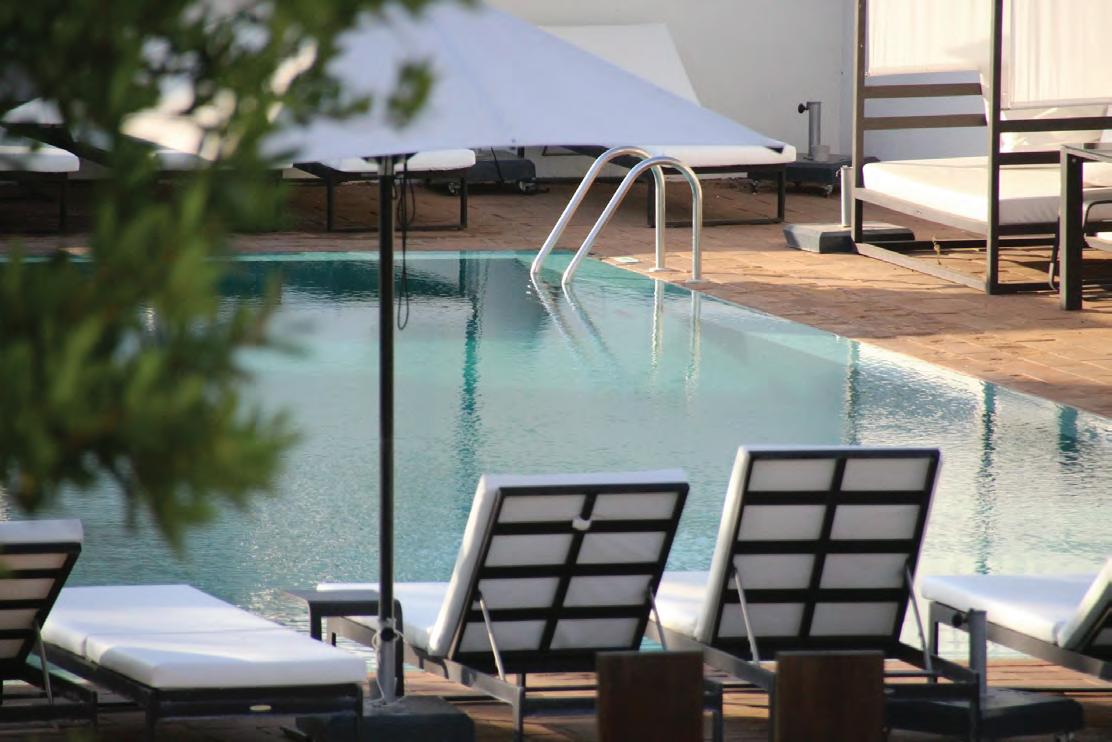
Attrition: A clause included in a hotel contract to ensure a group fulfills its contractual obligation for rooms by the
Amenity: center, playground). of on-property amenities has ensure a group fulfills its for
GPS + Playbook365 is an all-in-one sports-event management software that puts all the essential tools in one place. No more hopping back and forth between apps. GPS + Playbook365 simplifies event management from start to finish. The solution combines tools for team registration, multi-venue scheduling, scoring and bracketing, waiver management, email and text communications, marketing, group housing, analytics, and reporting. Organizers save time and delight customers with a simple one-stop shop. Visit gpsplaybook.com
+ Playbook365 an all-in-one management software that all tools forth between + simplifies management to solution tools for and and text marketing, group analytics, and Organizers save and delight one-stop Visit gpsplaybook.com
Best available rate: A pricing model hotels use to provide the lowest possible rate on a given date. Hotels analyze market conditions, such as occupancy and demand, to define the rate. This pricing strategy is based on ever-changing factors, so the best available rates fluctuate
available rate: A pricing model hotels use to provide the lowest possible rate on a given date. Hotels analyze and to the pricing strategy based on ever-changing the available fluctuate.
+ Playbook365 part of + Leisure Co. the world’s leading membership and leisure travel company.
GPS + Playbook365 is part of Travel + Leisure Co. (NYSE:TNL), the world’s leading membership and leisure travel company.
Cancellation clause: A provision in a hotel contract detailing the terms and conditions under which a company can cancel or terminate the agreement or reservation.
clause: in a hotel detailing and conditions a terminate the
penalty: groups. to money on group group penalties are
Cancellation penalty: for individuals and groups. Hotels stand to lose more money on group cancellations, so group penalties are typically stricter
Commission: Payment made for bringing business to a hotel, typically a percentage of the room rate.
Payment for bringing business to a of
Comp rooms: Complimentary guest room(s) based on the number of rooms a group purchases. For example, receive one free night for every 50 rooms occupied.
Concessions: Special deals from a hotel, usually in the form of discounts or complimentary services. Concessions typically include free parking, complimentary guest rooms, suite upgrades, food & beverage discounts, storage space for sports gear, special meals for athletes, and more
Complimentary the rooms For example, for every 50 a in the of complimentary services. complimentary rooms, suite upgrades, special athletes,
The date when a hotel releases unused accommodations in a room block to the public for general sale.
Destination Marketing Organization (DMO): A non-profit organization that promotes tourism and events in the destination.
Economic impact: Net change in an economy caused by activity involving the acquisition, operation, development, and use of sports facilities and services. Economic impact includes money spent in the destination on expenses like hotel accommodations, dining, shopping, entertainment, and transportation.
The hotel releases accommodations to the public for general sale. (DMO): A organization tourism and in the impact: by the acquisition, operation, and use Economic impact money in the on hotel shopping, transportation.

Event housing management software: Technology to handle the housing needs of event participants. Modern experience for players, families, and fans.
housing management Technology handle housing event participants. players, fans.
management: event risk management helps organizations safeguard participants and avoid financial loss, reputational damage,
put
Event risk management: event risk management helps organizations safeguard participants and avoid financial loss, reputational damage, and legal disputes.


As the world’s leading membership and leisure travel company, Travel + Leisure Co. (NYSE:TNL) transformed the way families vacation with the introduction of the most dynamic points-based vacation ownership program at Club Wyndham, and the first vacation exchange network, RCI. The company delivers more than six million vacations each year at 245+ timeshare resorts worldwide, through tailored travel and membership products, and via Travel + Leisure GO - the signature subscription travel club inspired by the pages of Travel + Leisure magazine. With hospitality and responsible tourism at the heart of all we do, our 18,000+ dedicated associates bring out the best in people and places around the globe We put the world on vacation. Learn more at travelandleisureco.com.
As the world’s membership leisure company, Travel + Leisure way vacation with the introduction of the most dynamic points-based ownership Club and first vacation The company delivers more timeshare resorts through tailored and via - the signature club by pages Travel + Leisure With responsible at all do, our bring the in and the globe. We put the world on vacation. Learn more travelandleisureco.com.

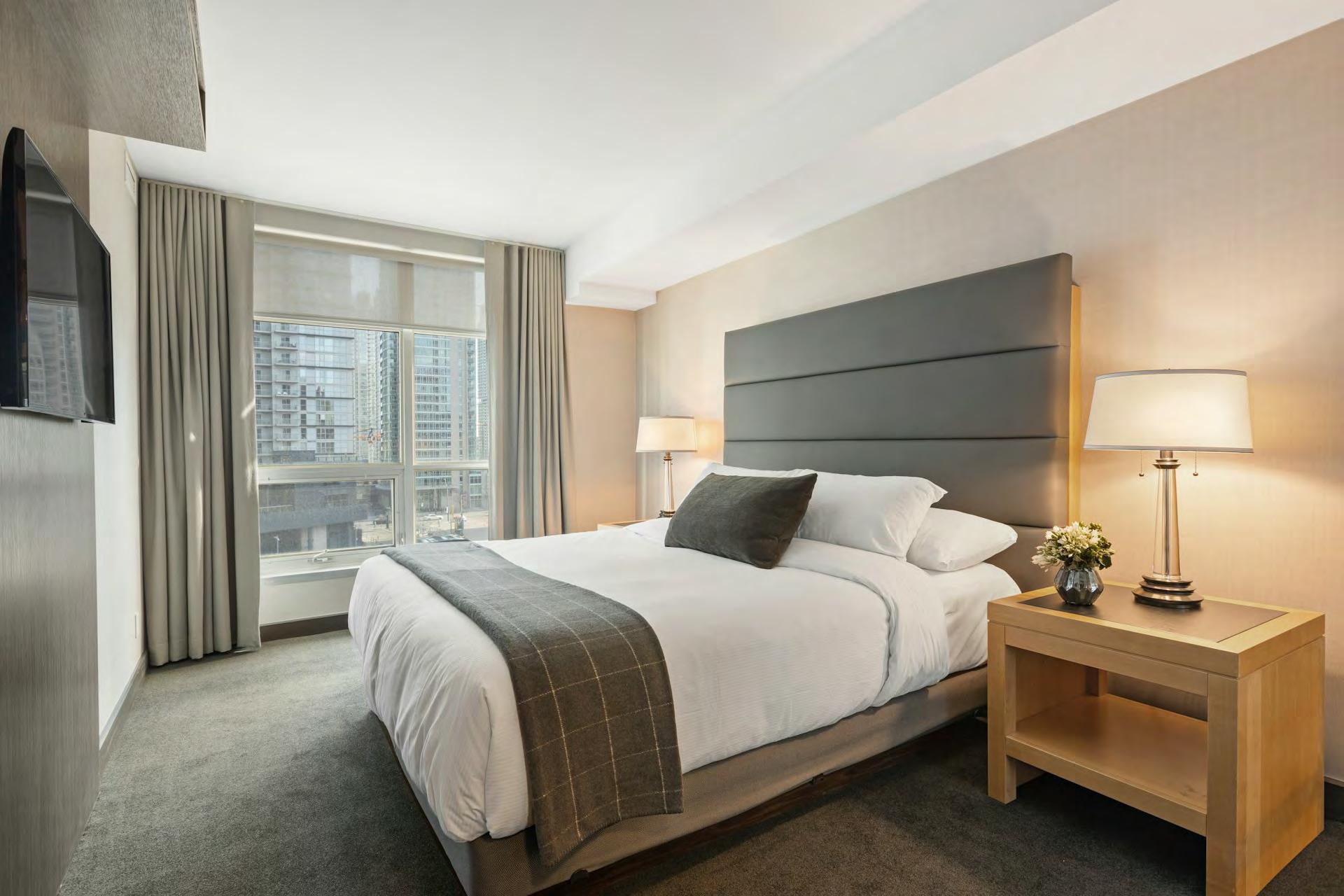
Amenity:
on-property premiums (dining, pool, fitness center, spa, playground). Use of some on-property amenities has a fee
Attrition: A clause included in a hotel contract to ensure a group fulfills its contractual obligation for rooms by the
Attrition fee:
Best available rate: A pricing model hotels use to provide the lowest possible rate on a given date. Hotels analyze market conditions, such as occupancy and demand, to define the rate. This pricing strategy is based on ever-changing factors, so the best available rates fluctuate
Cancellation clause: A provision in a hotel contract detailing the terms and conditions under which a company can cancel or terminate the agreement or reservation.
Cancellation penalty: for individuals and groups. Hotels stand to lose more money on group cancellations, so group penalties are typically stricter.
Commission: Payment made for bringing business to a hotel, typically a percentage of the room rate
Comp rooms: Complimentary guest room(s) based on the number of rooms a group purchases. For example, receive one free night for every 50 rooms occupied.
Concessions: Special deals from a hotel, usually in the form of discounts or complimentary services. Concessions typically include free parking, complimentary guest rooms, suite upgrades, food & beverage discounts, storage space for sports gear, special meals for athletes, and more.
Convention & Visitors Bureau (CVB): CVBs market their destinations and serve as valuable resources for events. If a travel planner copies the CVB on an RFP, the CVB can forward it to suppliers they believe would be a good fit.
The date when a hotel releases unused accommodations in a room block to the public for general sale.
Destination Marketing Organization (DMO): A non-profit organization that promotes tourism and events in the destination.
Economic impact: Net change in an economy caused by activity involving the acquisition, operation, development, and use of sports facilities and services. Economic impact includes money spent in the destination on expenses like hotel accommodations, dining, shopping, entertainment, and transportation.
Event housing management software: Technology to handle the housing needs of event participants. Modern experience for players, families, and fans.
Event risk management: event risk management helps organizations safeguard participants and avoid financial loss, reputational damage, and legal disputes.
Group booking: Reservation for a block of rooms for a specific group, typically starting at 10 rooms per night or more
Group rate: The rate for accommodations in a room block for an event. Group rates are typically lower than individual rates because of the volume.
History: Record of an organization’s previous events to help hotels manage expectations. History typically includes information on rooms contracted, actual pickup, meeting space, and food and beverage sales.
Housing bureau: Organizations, often part of a convention bureau, that manage the housing process for events in the destination.
Inventory: Guest rooms available for a hotel to sell.
National Sales Organization (NSO): NSOs manage and support sales activities for a hotel company or brand. They serve as a hub, coordinating sales e orts across multiple properties nationwide or globally. NSOs expedite responses to RFPs and help travel planners find the best accommodations in their network.
No-show: A term used for a reservation made but not consumed. The participant does not check in, cancel, or change the reservation.
Rebate: A set dollar amount an organizer negotiates into the room rate that hotels pay to help cover the costs of an event.
Request for Proposal (RFP): Travel planners send hotels RFPs to secure group room rates and availability.
Responsible rebates: An essential best practice. High room rates due to excessive rebates can prompt attendees to
Return on investment: A performance measure referring to the ratio between the net profit made and the cost of investment to produce an event.
Room availability: types, such as standard, deluxe, or suite
Room block: A designated number of hotel rooms set aside and often discounted for participants in tournaments, showcases, and other events.
Room block release date: The date when the hotel stops holding rooms exclusively for your group and makes them available to the public.
Room nights: The total number of guest rooms a planner commits to occupy in exchange for the contracted rate. Room nights equal the number of rooms times the number of nights reserved. A guest booking one room for three nights generates three room nights.
Room pickup: The number of sleeping rooms occupied from the total reserved.
Room rate: A fee charged for sleeping rooms. Types of rates include corporate, individual, group, and inclusive.
Rooming list: Roster of people needing accommodations. The list typically includes the room type and arrival and departure dates. Some properties also require passport numbers.
Sales coordinator/manager/representative: function space
Sports commission: visitation to the destination by hosting sporting events.
Stay to play: A policy requiring participants to use one of a preferred group of hotels to be eligible to participate in a sporting event. Guest rooms must be a part of the event’s contracted inventory with the hotel.
Third-party housing company: An organization that works with organizers to find guest rooms and negotiate hotel contracts. Housing companies have long-established relationships with hotels. They negotiate competitive rates and